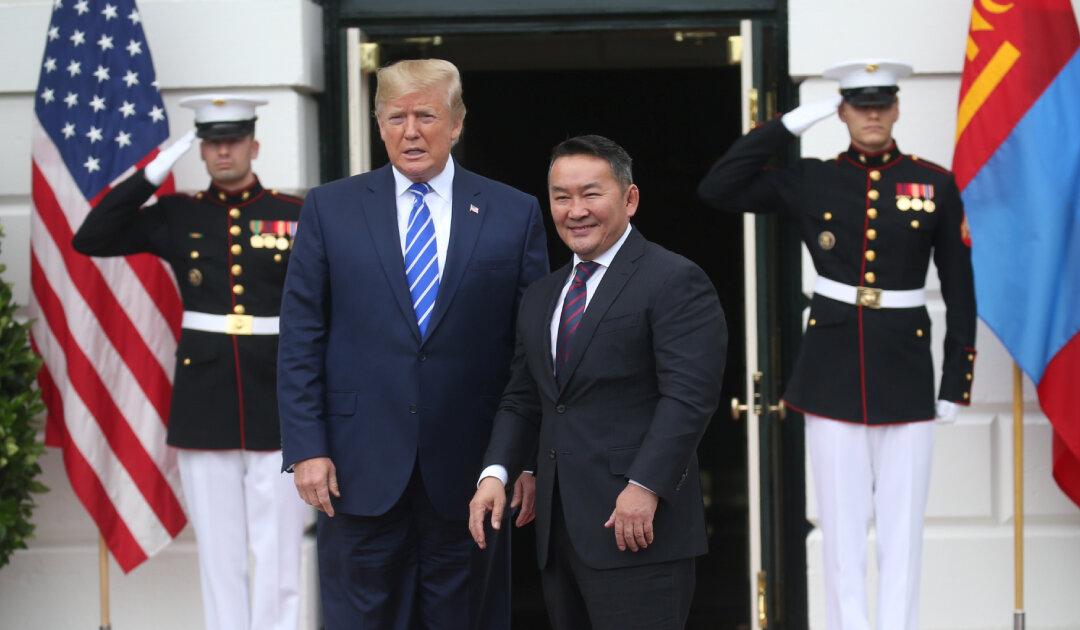President Donald Trump on July 31 revealed the name he chose for a horse that was somewhat symbolically given to his 13-year-old son, Barron, by visiting Mongolian President Battulga Khaltmaa: Victory.
Battulga, the first president from the remote Asian nation to visit the White House since 2011, pulled up on the South Lawn driveway in a black SUV, without the horse.





